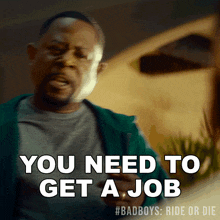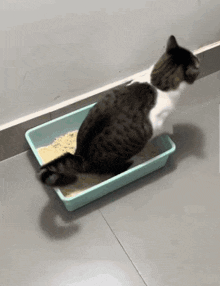Application season is nearing, and you're either struggling to list your activities on your resume or frantic because you're worried you have nothing to list. Building resumes has always been a long-sighted goal, usually worked on over the span of 2-3 years, or even 5-8 months (in the worst-case scenario) if managed and planned properly.
Colleges and universities get hundreds upon thousands of applications, and frankly, recruiters aren't going to read every word. Recruiters spend only an average of 7.4 seconds looking at a resume before deciding if a candidate is a good fit for the role, as reported by the TheLadders study based on eye-tracking data tracing as "F."
This makes it every applicant's goal to make a solid impression within those 7 seconds and differentiate themselves from the others in the competition. So here are a few pointers to know, mistakes to avoid, and suggestions to make you memorable.
Let us slide into your dms 🥰
Get notified of top trending articles like this one every week! (we won't spam you)What is Resume/Portfolio Building?
Most, if not all, colleges and universities require a resume/portfolio of the student to be submitted for application; this would include one's qualifications, achievements, extracurriculars, public services, internships, etc. It's the most comprehensive introduction to a candidate's qualifications and personality. When referring to building up our portfolio, this article will mainly cover the activities part of the resume, which plays a key role in showcasing one's personality, apart from the qualifications and achievements column in one's portfolio.

Take the Quiz: Music or no music when studying?
Which helps you study better?
1. Partake in Activities That Relate to Your Career/Course
The first mistake most make is: assuming that multiple programs and initiatives listed out on the resume are automatically more impressive, which, trust me, can't be further from the truth. This assumption often leads to taking up multiple, different initiatives at every opportunity, which may be a good thing, but if not thought out properly, can look extremely haphazard and, in the worst case: desperate. Always prioritize quality over quantity rather than the other way around.
For example, let's say you wish to pursue psychology. Those certificates from the 2 robotics science workshops and the medals from inter-school cooking competitions aren't going to help your resume; rather, they end up being redundant.
Instead, participate in related activities, like helping out in old age homes or orphanages, and maybe highlight how you interacted with them through forming an emotional connection.
Platforms like Udemy, Skillup and Coursera, are great for online courses and trials.
Programmes the TeenInterns and Mindlr, can help in getting you internships
For those who haven't yet finalized on what they want to pursue, picking the right internships and programs may obviously be a confusing task. To avoid participating in redundant activities, take up those at which you are good and passionate. Most importantly, covers all the base activities required for a good resume—voluntary services, social initiatives, MUNs, etc.

Image Credit: Michael Steinberg on Pexels
2. Consistency and Cohesiveness are Key
Continuing, the points covered in the previous section, apart from cohesive and reasonable activities, maintain consistency in what you showcase on your resume and in real life too. Participating in so many programs "just in case" leads to a massive waste of time, energy, and resources. Top universities and colleges like Harvard, UCLA, etc., prefer an all-rounded class rather than an all-rounded student, i.e., they prefer hosting a class full of students who specialize in one field rather than a student who is good at 7-8 different things.
For example, let's say you are passionate about tennis. Your resume must reflect your interest in said subject, even if you don't actually play the sport. This can be in the form of tennis-related activities, interviews with local tennis clubs, volunteering and managing said clubs, managing your school tennis team, writing about and analyzing events in a blog format, or anything of the sort.
For colleges, this not only reflects your passion and dedication towards something—which consequently displays your potential for future endeavors—but also your diligence and discipline.
3. Highlighting and Building on Already Mentioned Topics
Now that you have listed out your participations and initiatives and also kept them consistent, it's time to build on them. Full participation and completion of activities are characterized by partaking and developing an activity over a long duration rather than short, incomplete ones. Basically, rather than working on 11-12 different but related initiatives, develop 5-7 initiatives until mastery/completion.
For example, rather than volunteering at 4 different foundations for, let's say, a week each, diligently and actively volunteer at 2 foundations for a much longer duration.
Here's another example: let's say you're learning a few skills. Rather than learning 5 in order to "show more," wholly develop 3, i.e., rather than reaching DPR level 3 in five skills, spend that time and effort in reaching DPR level 8-9 in three skills.
If you're going to apply for a certain course, SHOW the collage why you have picked this particular one without having to spell it out for them, show them that you are capable of, and already have been actively working on this subject.

Image Credit: Sora Shimazaki on Pexels
4. Use the most Effective Language
In my personal opinion, apart from just filling up your resume with impressive feats, how you present your activities makes or breaks the recruiter's perception of you. Even if, let's say, you've managed to bag an internship at NASA, ISRO, or Google and do well there, but somehow present it in the most bland and unappealing manner, it won't be adequate.
The main goal of any resume/applicant is to Be Memorable.
Even if you don't have such impressive feats on your resume, well, make your already listed ones sound good. Because trust me, the right words and phrasing can be your best friends. Optimize your achievement with words to make your activities sound better. (And no, don't consider yourself to be lying; you're only stating the decorated truth.)
Instead of mentioning how you've volunteered at a foundation for a week, convert the time period into hours and say "168 hours."
Conversely, let's say you've volunteered there for 100—independent—hours over the span of 2 years; instead of mentioning the number of hours, mention the time span, i.e., "an active volunteer at XYZ Foundation for over 2 years," as opposed to "volunteered at XYZ Foundation for 100 hours.".
5. Passion Projects
Passion projects are to your resume what good ambiance and aesthetics are to a restaurant—not compulsory but play a fundamental role in making an impression, being memorable, and standing out. A long-term, well-planned, and fleshed-out project that you inception, carried out, and saw through would make colleges notice your diligence, determination, discipline, and drive—and above all, your passion.
This can be a small business, a social initiative (climate, help groups, service groups, etc.), a website, independent research/study on a certain topic, a short film—anything really.

Image Credit: Pixabay on Pexels
Take the Leap and make Connections.
In order to be able to take the above-mentioned initiatives and participate in the programs that were mentioned above, thorough research and field search help. But the real difference in the quality of opportunities can be made through interaction with others, i.e., networking.
Although it isn't something you showcase on your resume/portfolio, it is indeed true that people can be the greatest assets and resources. Knowing people who can mentor and help you in your endeavors can provide you with opportunities and connect you to other people. Acquainting yourself with professionals and established people not only gives you opportunities but also helps you build your speaking and people skills.
A networking event is being held in your city. Go ahead and attend it. Do you know a mutual who might be a helpful person?
Get in. Touch. Talk to them; make the jump. Connections are waiting to be made, only if you take initiative. No one will know what you want until you tell them.









.jpg)


